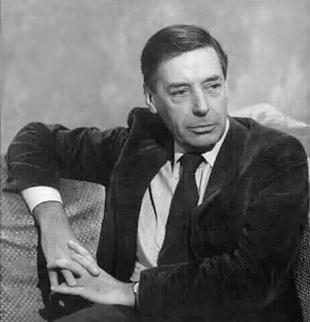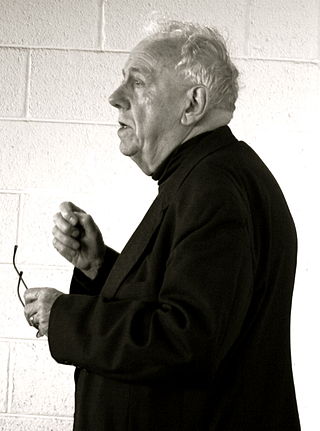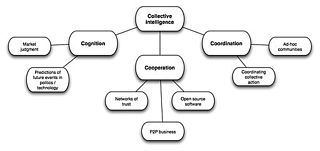Related Research Articles
In ethical philosophy, ethical egoism is the normative position that moral agents ought to act in their own self-interest. It differs from psychological egoism, which claims that people can only act in their self-interest. Ethical egoism also differs from rational egoism, which holds that it is rational to act in one's self-interest. Ethical egoism holds, therefore, that actions whose consequences will benefit the doer are ethical.
Epistemology is the branch of philosophy concerned with knowledge. Epistemologists study the nature, origin, and scope of knowledge, epistemic justification, the rationality of belief, and various related issues. Debates in (contemporary) epistemology are generally clustered around four core areas:

Plato was an ancient Greek philosopher of the Classical period who is considered a top thinker in Philosophy. He is the namesake of Platonic love and the Platonic solids. He founded the Academy, a philosophical school in Athens where Plato taught the doctrines that would later become known as Platonism. The philosopher was an innovator of the written dialogue and dialectic forms in philosophy. He was a system-builder. He also raised problems for what became all the major areas of both theoretical philosophy and practical philosophy.
Reason is the capacity of applying logic consciously by drawing conclusions from new or existing information, with the aim of seeking the truth. It is associated with such characteristically human activities as philosophy, religion, science, language, mathematics, and art, and is normally considered to be a distinguishing ability possessed by humans. Reason is sometimes referred to as rationality.
The Theaetetus is a philosophical work written by Plato in the early-middle 4th century BCE that investigates the nature of knowledge, and is considered one of the founding works of epistemology. Like many of Plato's works, the Theaetetus is written in the form of a dialogue, in this case between Socrates and the young mathematician Theaetetus and his teacher Theodorus of Cyrene. In the dialogue, Socrates and Theaetetus attempt to come up with a definition of episteme, or knowledge, and discuss three definitions of knowledge: knowledge as nothing but perception, knowledge as true judgment, and, finally, knowledge as a true judgment with an account. Each of these definitions is shown to be unsatisfactory as the dialogue ends in aporia as Socrates leaves to face a hearing for his trial for impiety.
Eudaimonia, sometimes anglicized as eudaemonia or eudemonia, is a Greek word literally translating to the state or condition of 'good spirit', and which is commonly translated as 'happiness' or 'welfare'.

John Henry McDowell is a South African philosopher, formerly a fellow of University College, Oxford, and now university professor at the University of Pittsburgh. Although he has written on metaphysics, epistemology, ancient philosophy, nature, and meta-ethics, McDowell's most influential work has been in the philosophy of mind and philosophy of language. McDowell was one of three recipients of the 2010 Andrew W. Mellon Foundation's Distinguished Achievement Award, and is a Fellow of both the American Academy of Arts & Sciences and the British Academy.

Rosalind Hursthouse is a British-born New Zealand moral philosopher noted for her work on virtue ethics. She is one of the leading exponents of contemporary virtue ethics, though she has also written extensively on philosophy of action, history of philosophy, moral psychology, and biomedical ethics. Hursthouse is Professor Emerita of Philosophy at the University of Auckland and Fellow of the Royal Society of New Zealand.

Aristotelianism is a philosophical tradition inspired by the work of Aristotle, usually characterized by deductive logic and an analytic inductive method in the study of natural philosophy and metaphysics. It covers the treatment of the social sciences under a system of natural law. It answers why-questions by a scheme of four causes, including purpose or teleology, and emphasizes virtue ethics. Aristotle and his school wrote tractates on physics, biology, metaphysics, logic, ethics, aesthetics, poetry, theatre, music, rhetoric, psychology, linguistics, economics, politics, and government. Any school of thought that takes one of Aristotle's distinctive positions as its starting point can be considered "Aristotelian" in the widest sense. This means that different Aristotelian theories may not have much in common as far as their actual content is concerned besides their shared reference to Aristotle.

Sir Bernard Arthur Owen Williams, FBA was an English moral philosopher. His publications include Problems of the Self (1973), Ethics and the Limits of Philosophy (1985), Shame and Necessity (1993), and Truth and Truthfulness (2002). He was knighted in 1999.

Alasdair Chalmers MacIntyre is a Scottish-American philosopher who has contributed to moral and political philosophy as well as history of philosophy and theology. MacIntyre's After Virtue (1981) is one of the most important works of Anglophone moral and political philosophy in the 20th century. He is senior research fellow at the Centre for Contemporary Aristotelian Studies in Ethics and Politics (CASEP) at London Metropolitan University, emeritus Professor of Philosophy at the University of Notre Dame, and permanent senior distinguished research fellow at the Notre Dame Center for Ethics and Culture. During his lengthy academic career, he also taught at Brandeis University, Duke University, Vanderbilt University, and Boston University.

The Cambridge Platonists were an influential group of Platonist philosophers and Christian theologians at the University of Cambridge that existed during the 17th century. The leading figures were Ralph Cudworth and Henry More.

Virtue epistemology is a current philosophical approach to epistemology that stresses the importance of intellectual and specifically epistemic virtues. Virtue epistemology evaluates knowledge according to the properties of the persons who hold beliefs in addition to or instead of the properties of the propositions and beliefs. Some advocates of virtue epistemology also adhere to theories of virtue ethics, while others see only loose analogy between virtue in ethics and virtue in epistemology.
Aristotle first used the term ethics to name a field of study developed by his predecessors Socrates and Plato which is devoted to the attempt to provide a rational response to the question of how humans should best live. Aristotle regarded ethics and politics as two related but separate fields of study, since ethics examines the good of the individual, while politics examines the good of the city-state, which he considered to be the best type of community.
Philosophy is the study of general and fundamental problems concerning matters such as existence, knowledge, values, reason, mind, and language. It is distinguished from other ways of addressing fundamental questions by being critical and generally systematic and by its reliance on rational argument. It involves logical analysis of language and clarification of the meaning of words and concepts.
Robert N. Audi is an American philosopher whose major work has focused on epistemology, ethics, rationality and the theory of action. He is O'Brien Professor of Philosophy at the University of Notre Dame, and previously held a chair in the business school there. His 2005 book, The Good in the Right, updates and strengthens Rossian intuitionism and develops the epistemology of ethics. He has also written important works of political philosophy, particularly on the relationship between church and state. He is a past president of the American Philosophical Association and the Society of Christian Philosophers.
David Neil Sedley FBA is a British philosopher and historian of philosophy. He was the seventh Laurence Professor of Ancient Philosophy at Cambridge University.

Common sense is sound, practical judgement concerning everyday matters, or a basic ability to perceive, understand, and judge in a manner that is shared by nearly all people.
Eudorus of Alexandria was an ancient Greek philosopher, and a representative of Middle Platonism. He attempted to reconstruct Plato's philosophy in terms of Pythagoreanism.
References
- 1 2 Moorhead, Joanna (11 July 2020). "UK's only trans philosophy professor to JK Rowling: Harry Potter helped me become a woman". The Guardian. Retrieved 11 July 2020.
- 1 2 3 4 5 6 7 "Timothy Chappell: Curriculum Vitae" (PDF). The Open University. March 2014. Archived from the original (PDF) on 13 January 2021. Retrieved 23 April 2022.
- ↑ "Christian Sophia Grace CHAPPELL personal appointments - Find and update company information - GOV.UK". company-information.service.gov.uk. Companies House. Retrieved 23 April 2022.
- ↑ Chappell, Timothy David John (1992). "Aristotle and Augustine on voluntary action and freedom and weakness of the will". ERA. The University of Edinburgh. Retrieved 23 April 2022.
- 1 2 3 "Professor Sophie-Grace Chappell". The Open University. Archived from the original on 23 April 2022. Retrieved 23 April 2022.
- ↑ Hallvard Lillehammer. "Knowing What to Do: Imagination, Virtue, and Platonism in Ethics [Critical Review]" (PDF). Archived (PDF) from the original on 15 February 2017.
- ↑ Chappell, Timothy (1 March 2011). "On the very idea of criteria for personhood" (PDF). The Southern Journal of Philosophy. Wilhey. 49 (1): 1–27. doi:10.1111/j.2041-6962.2010.00042.x – via Wiley Online Library.
- ↑ Matthew O'Brien (6 June 2011). "What Does it Mean to be a 'Political Animal'?".
- ↑ Heuer, Ulrike; Lang, Gerald (28 June 2012). Luck, Value, and Commitment: Themes From the Ethics of Bernard Williams. Oxford: Oxford University Press. pp. 28, 36. ISBN 9780199599325. OCLC 1120374427.
- ↑ Heuer_Lang,OUP 2012, p. 36.
- ↑ "Reading the περιτρoπη: Theaetetus 170c-171c". Phronesis a Journal for Ancient Philosophy. Brill. 51 (2 (April 2006)): 109–139. 2 January 2006. doi:10.1163/156852806777006787. ISSN 0031-8868. OCLC 5672370177. Archived from the original on 13 January 2021. . The five Platonic dialogues are: Meno (92a), Phaedo (76b, 97d-99d), Symposium (202a), Republic (534b), Tymaeus (51e).
- ↑ "Epiphanies: An Ethics of Experience by Sophie Grace Chappell". Oxford University Press. Oxford University Press. Retrieved 2 March 2024.
- ↑ "Songs For Winter Rain by Sophie Grace Chappell". Ellipsis Imprints. Ellipsis Imprints. Retrieved 2 March 2024.